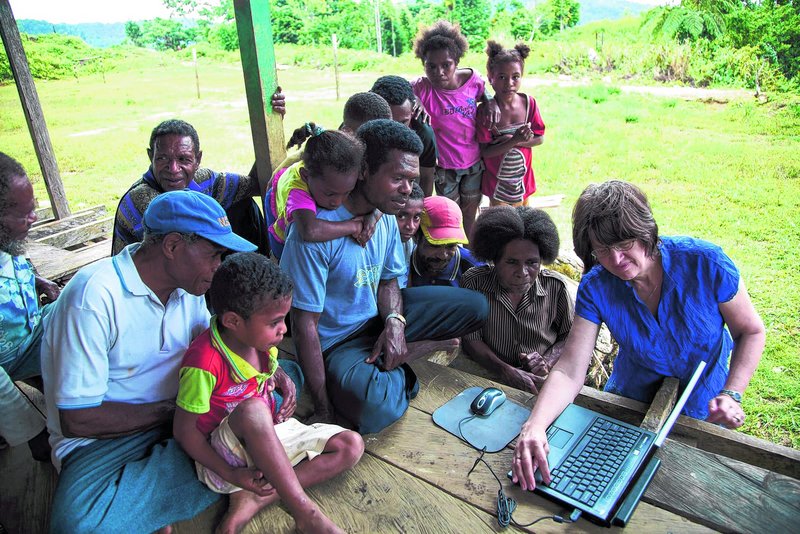ORLANDO, Fla. – In a remote island village of 1,200 people in Indonesia, a man hooks a notebook computer to a satellite connection and sends a Bible translation in his native Yawa language to a consultant sitting in her home office in Arlington, Texas.
In a Nigerian city of a nearly 1 million people, a couple working with translation missionaries post baby pictures on their Facebook page and talk by Skype to the wife’s parents back in Florida.
To the nearly 6,000 translators, linguists and educators who work for Orlando-based Wycliffe Bible Translators in 90 countries, social media and new communications technology have compressed the time it takes to translate a Bible from 12 years on average to seven, said Bob Creson, CEO of Wycliffe, the world’s largest Bible-translation organization.
For missionaries, it means they suffer less from reverse culture shock when they return home after being overseas — and away from American culture — for years at a time. And for Wycliffe, it means moving faster and more efficiently toward translating the Bible for the remaining 2,200 languages in the world without one.
“People just don’t feel as isolated as they used to. The size of the globe has been reduced,” Creson said.
A survey of 800 Wycliffe missionaries found that a third of them used e-mail on a daily basis. About 70 percent had more than 40 hours per week of Internet access.
“It’s unreal what has happened in terms of technology in many of these countries,” Creson said. “Our folks are able to take advantage of that.”
The Indonesian island village where Mandowen lives has no stores, no hospital, no electricity. Homes are built on stilts in a valley surrounded by mountains and jungles. The only road into town has been cut off by a landslide.
Mandowen is in his mid-30s and has been working with Wycliffe Bible Translators since 1993. In the past, it would take him a week to walk from his village to the coast and take a boat to the city of Jakarta to work with Wycliffe missionaries to translate the Bible into Yawa. The city made him sick, the distance from his village made him lonesome.
In March 2009, Wycliffe missionary Linda Jones and an information technology worker came to Mandowen’s village to set him up with a generator, a laptop computer and a satellite connection.
On a table shaded by the overhang of his thatched roof, Mandowen communicates through his laptop with Jones at her home on a cul-de-sac in suburban Dallas. Their revisions now take minutes, not months.
“It went from hearing from Mandowen once in a blue moon to being able to connect with him as often as we wanted to,” Jones said. “It just revolutionized things.”
The computer room inside Bob and Donna Bradford’s brick-red Deltona, Fla., home was once their son’s bedroom. This explains the two walls painted black and the two painted aqua. Both Bob and Donna have a computer in the room, but Bob’s is the one equipped with Skype, which allows the Bradfords to see and talk to their daughter Christie Winkler in Nigeria.
It was on Skype that the Bradfords learned their daughter was going to have another baby. The announcement was made by Christie dressing her 21-month-old son Judah in a T-shirt with homemade lettering that said “Big Brother.”
“It’s very much like talking to them when they were living in Orlando,” said Donna Bradford, “and then you remember how many miles away they are.”
Winkler and her husband Chris began their four-year mission on July 2009, working for Wycliffe in the Nigerian city of Jos. Skype, Facebook and cell phones, for the Winklers, are a way to stay close while being 6,000 miles away.
The ability to stay connected helps alleviate the reverse culture shock so many missionaries experience when they return home, Chris Winkler said. The long periods of disconnect between missionaries and home have been reduced to the broken bits of time when Internet access and cell-phone service are down.
“The days when missionaries came over for years and didn’t have any connection with home, I think those are days of yore,” Winkler said.
Send questions/comments to the editors.


